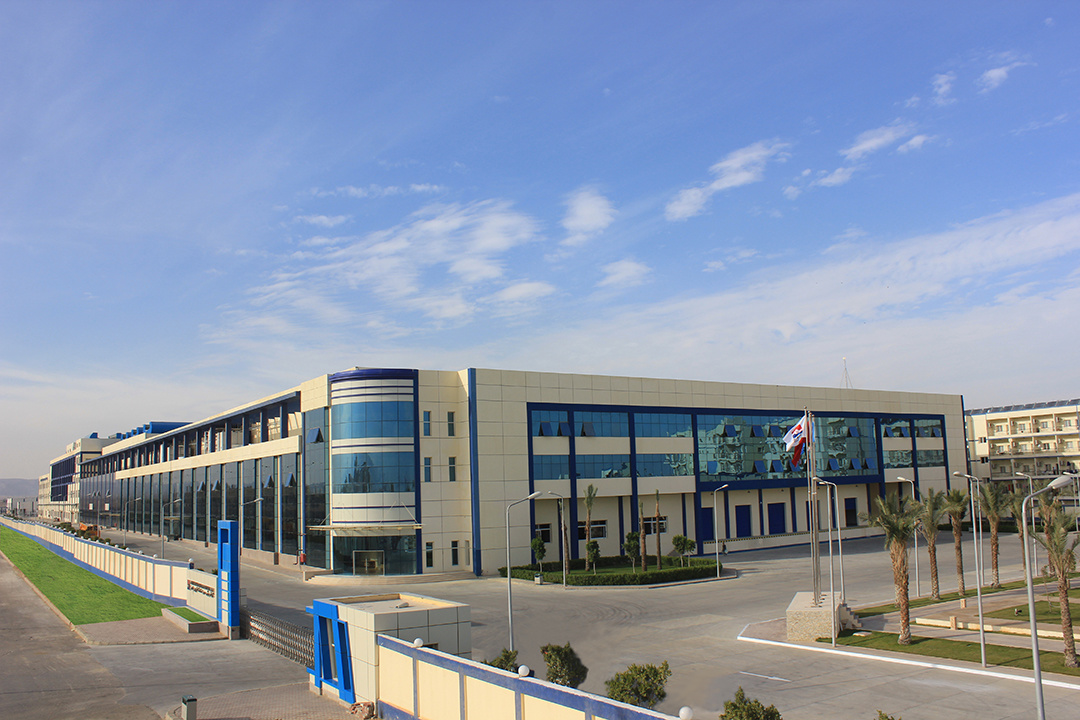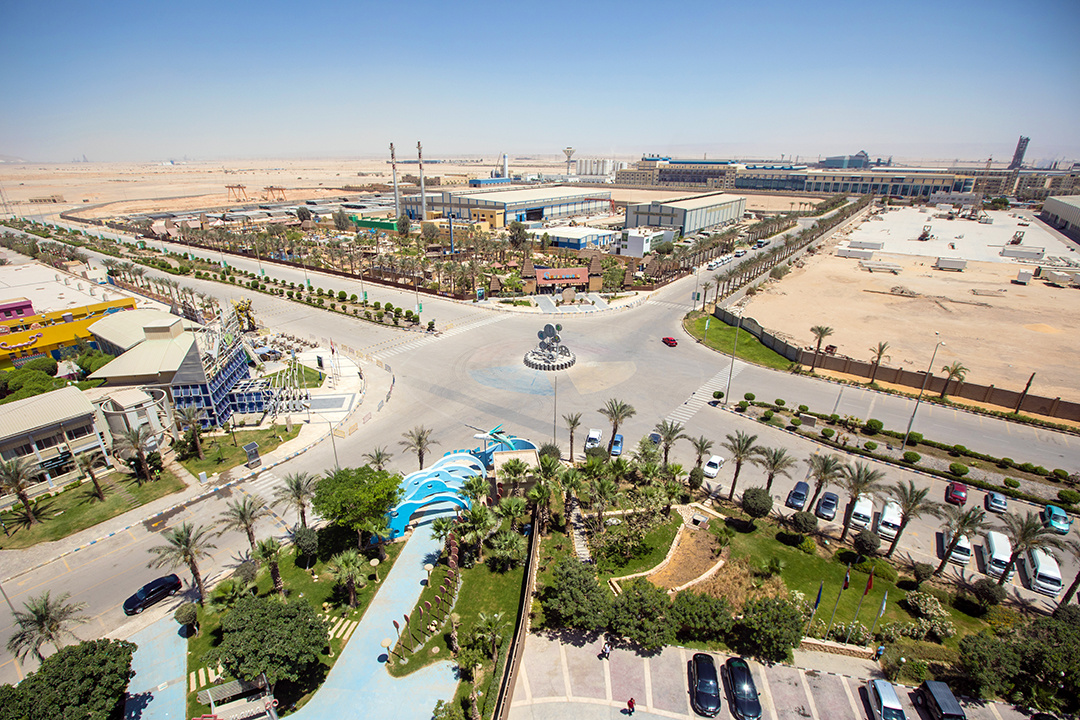
TEDA Cooperation Zone Witnesses China-Africa Infrastructure "Hard Connectivity" to a New Level
Release time:
2024-09-12 18:16
Source: China Youth Daily
Trainee reporter Li Yue
Reporter Li Yuanyuan
The original title "China-Africa infrastructure" hard connectivity "to a new level", the original text has been abridged
In the next three years, China is willing to implement 30 infrastructure connectivity projects in Africa, 1000 "small and beautiful" livelihood projects, 30 clean energy projects, and promote Chinese enterprises to invest no less than 70 billion yuan in Africa ...... On the morning of September 5, President Xi Jinping announced at the opening ceremony of the 2024 Forum on China-Africa Cooperation Summit that in the next three years, China is willing to work with Africa to carry out the 10 partnership actions of China and Africa to promote modernization, deepen China-Africa cooperation and lead the modernization of the "Global South.
From the Johannesburg Summit of the Forum on China-Africa Cooperation in 2015 to the Beijing Summit in 2018, from the 8th Ministerial Conference of the Forum on China-Africa Cooperation in 2021 to the China-Africa Leaders Dialogue in 2023, and then to the Beijing Summit, China-Africa infrastructure "Hard connectivity" continues to reach new levels.
Energy facilities contribute to green development in Africa
While more and more "small and beautiful" infrastructure achievements have benefited thousands of households in Africa, exchanges between China and Africa in the field of green manufacturing have also been promoted.

In 2012, Jushi Egypt Glass Fiber Co., Ltd. (referred to as "Jushi Egypt") invested by the global glass fiber leader China Jushi Co., Ltd. settled in the China-Africa TEDA Suez Economic and Trade Cooperation Zone (referred to as "TEDA Cooperation Zone"). For more than ten years, it has enabled the Egyptian glass fiber industry to grow from scratch, effectively driving the vigorous development of the local upstream and downstream industrial chains such as minerals and packaging materials, and helping Egypt to achieve manufacturing upgrades. Today, Egypt's boulder glass fiber base has an annual production capacity of 360000 tons, making it the largest glass fiber production base on the African continent, and Egypt has become the fourth largest glass fiber producer in the world.
Glass fiber is a kind of inorganic non-metallic material with excellent performance, which is widely used in wind power, new energy vehicles, pipelines, household bathroom and other fields.
"Glass fiber is of great help to our country to reduce energy consumption and save energy." Fati Tolki, a 29-year-old Egyptian employee who speaks Chinese, has worked in Jushi Egypt for seven years. As a deputy manager of the technical quality department, he is well aware of the efforts made by Chinese enterprises to build a green barrier for Egypt.
"The world's 1/3 wind turbine blades use glass fiber produced by boulders." Ma Xinyao, deputy general manager of Jushi Egypt, told China Youth Daily that "wind power generation and photovoltaic power generation inject green energy into Egypt's national grid, and then connect Jushi Egypt's production line to provide the electricity needed for glass fiber production. The company is using this green production mode to help the Egyptian government in the practical application of green energy industry development."
The practice of Megalithic Egypt is only a microcosm. In recent years, China has continued to help African countries adopt green technologies and clean energy in their manufacturing industries. In Kenya, the largest photovoltaic power station in East Africa, the Garissa photovoltaic power station, built by Chinese companies, generates more than 76 million kWh of electricity per year, reducing carbon dioxide emissions by about 64000 tons per year; the Kaileta hydropower station in Guinea has greatly alleviated the electricity shortage in the capital Conakry and surrounding areas ...... A number of photovoltaic power stations and hydropower stations stand on African soil, helping more and more African countries to realize their dream of green and low-carbon development.
Park Cooperation to Activate African Trade Market
Adjacent to the Suez Canal and the Red Sea to the east, a new city rising from the desert has witnessed the acceleration and upgrading of China-Africa cooperation.

"When I first arrived 14 years ago, it was a desert here, and it was difficult to have a normal meal. Now it has changed so much that workshops, hotels, and staff apartments have all been built." Over the past decade, Cao Hui, executive director of TEDA, Egypt, has witnessed too many "unexpected" TEDA cooperation zones ".
In 2008, China-Africa TEDA Investment Co., Ltd., established by Tianjin TEDA Investment Holdings Co., Ltd. and China-Africa Development Fund, formally undertook the construction of the TEDA cooperation zone, and the cooperation zone was divided into a starting area and an expansion area. The starting area has been fully developed, forming four leading industries: new building materials, petroleum equipment, high and low voltage equipment, and machinery manufacturing. At the beginning of 2016, the heads of state of China and Egypt jointly unveiled the project of expanding the cooperation zone.
"The rich wage sources and good international trade conditions in the TEDA Cooperation Zone are important factors in attracting enterprises to invest." Cao Hui told reporters that according to the Egypt-EU partner country agreement, manufactured industrial products produced in Egypt are exported to the EU to be exempted from all tariffs. At the same time, companies in the TEDA cooperation zone can also enjoy Egypt's own tax reductions and exemptions.
As of the first half of 2024, the cooperation zone has attracted 169 companies to settle in, with actual investment exceeding US $2 billion, cumulative sales exceeding US $5 billion, and taxes and fees exceeding US $0.45 billion. It has become Egypt's best comprehensive environment, the largest investment density, and unit output. The highest industrial park.
"In addition to activating the development of the surrounding areas, the cooperation zone has also contributed to local employment." Cao Hui said that up to now, the cooperation zone has directly solved more than 9000 local jobs, and the industry has driven about 70000 jobs. The total proportion of Egyptian employees in the cooperation zone is 91.3, and the proportion of Egyptian employees in some enterprises is more than 98%.
"Chinese enterprises have good management, good technology and good treatment. Many Egyptians want to work here." A few days ago, Ahmed Abdul Baki, 38, received the good news of being promoted to the secretary of the general manager of the TEDA cooperation zone. Since joining the company in 2011, Baki has participated in most of the projects in the cooperation zone. "I am very happy to witness the development of this'desert oas' with my Chinese colleagues".
—END—
Related News
2025-11-28








